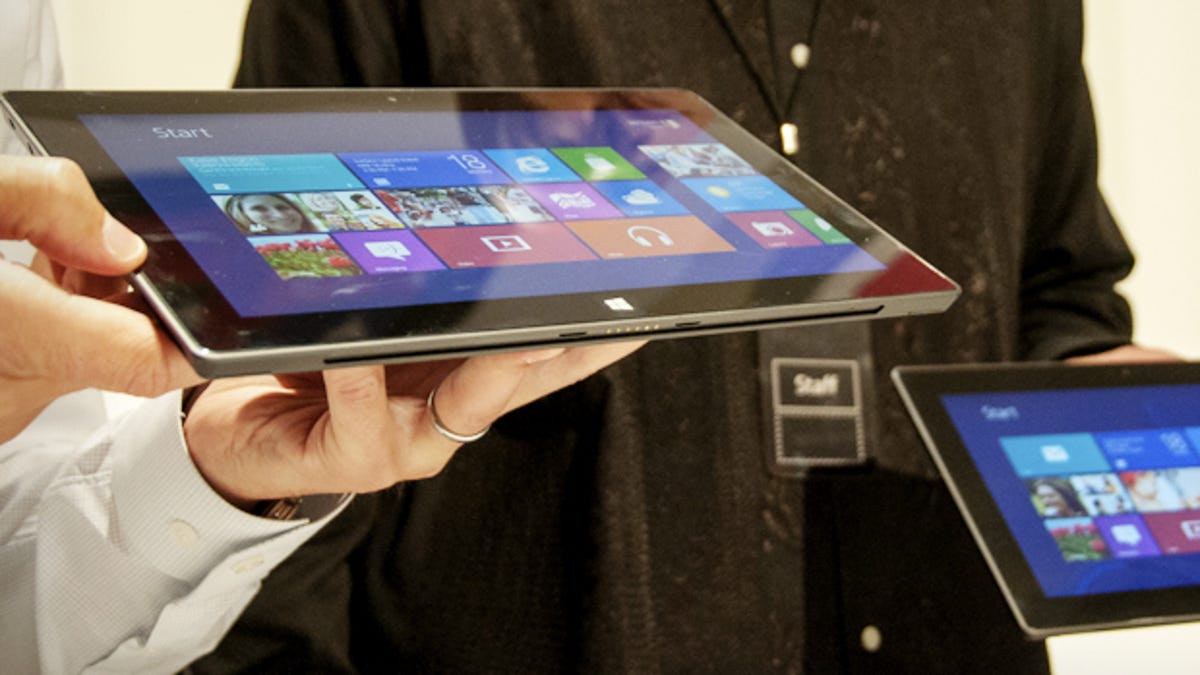Reality check: Microsoft's calculated 're-Surfacing' of the PC business
Microsoft may have made some OEMs nervous by its entry into the tablet business, but channel conflict in the tech business is as American as apple pie.

In the 24 hours since Monday's Surface announcement, there's been no shortage of commentary attesting to Microsoft's disloyal treatment of its longtime OEMs by going head-to-head with them in the tablet computer business.
But loyalty cuts both ways, and you don't need to rewind Michael Corleone's quote about separating business from the personal to understand that Microsoft's "partners" left it little choice in the matter. No doubt this was a cold move but the blunt truth is that most of the OEMs now silently fuming about having to compete against their key operating system supplier have turned out consistently crappy devices, effectively leaving Apple to mop up the tablet market.
The obvious counterargument -- and fact -- is that they simply couldn't build it with anything Microsoft did before Windows RT, which isn't out yet. Intel also shares fault as much as Microsoft for holding onto technologies which weren't particularly friendly to the size and power constraints of mobile devices (such as keeping x86 over ARM.) Also, without Windows RT or Win 8, Microsoft and its OEMs had no shot at competing against Apple, or even Android. So the OEMs ought to be salivating at the opportunity to challenge Apple in this fast-growing market. Given its big R&D effort leading up to Monday's Surface announcement, Microsoft aspires to emulate Apple's success.
The question which now begs an answer: Is this more of a reference design, or does Microsoft intend to market the bejeezus out of Surface? Or something between the two? We won't know the answer yet for several months since Microsoft did not reveal either a ship date or final price. But there's an historical precedent to consider.Intomobile's Stefan Constantinescu offers a welcome reminder that Google's introduction of the Nexus One served as a catalyst that forced Android licensees to pull on their thinking caps and come up with snazzier hardware designs.
How many of the hundreds of millions of Android devices out on the market are Nexus devices? Very few. How many of the next hundreds of millions of Windows PCs that will be sold over next year or two be Surface tablets? Very few. The Nexus wasn't made to compete with partners, it was to inspire partners to push the boundaries of what's possible. Surface does the same thing.
The difference, of course, being that, unlike Microsoft, Google does not charge licensees for software (hat tip to Gartner's Michael Gartenberg). Still, Constantinescu's point is well taken.
Another historical footnote to consider: When it comes to the tech industry, channel conflict is as American as apple pie. In the 1980s, computer manufacturers often sold PCs direct to the public even while selling them through authorized third-party dealerships. The worst offender was none other than IBM, which went so far as to open up a national network of IBM-only computer stores, even as it distributed its PCs through the likes of now-defunct retailers like ComputerLand and Businessland.
The dealers grumbled, but they still found ways to prosper. As fate had it, IBM was first to call it quits, selling the computer store business to Nynex after only a few years. With the notable exception of Compaq, few companies could claim to be pure -- they all were driven to cash in on the PC craze while the getting was good. Even Apple, which sold direct to the education market right from the get-go. In 1997, it began selling online and four years later opened its first company-owned stores.
It's an inexact comparison in that what Microsoft is doing is slightly different. But for the first time, Microsoft is competing against its OEMs -- and that's why you won't find any of its longtime hardware partners slapping high-fives upon hearing about the news. For now, Microsoft is making life harder on its partners whose computers run the Windows operating system. Will it inevitably lead to a crisis down the road? Doubtful. My guess is they'll get over it soon enough. Besides, if this works to get the OEMs' competitive juices flowing again, nobody's going to remember this episode as more than a minor dust-up.
Update: FWIW, Acer's Stan Shih is being quoted saying that Microsoft's only planning a temporary stay in the tablet business and that Monday's announcement was part a bigger strategy to "encourage" device makers to bring out Windows 8 tablets.

